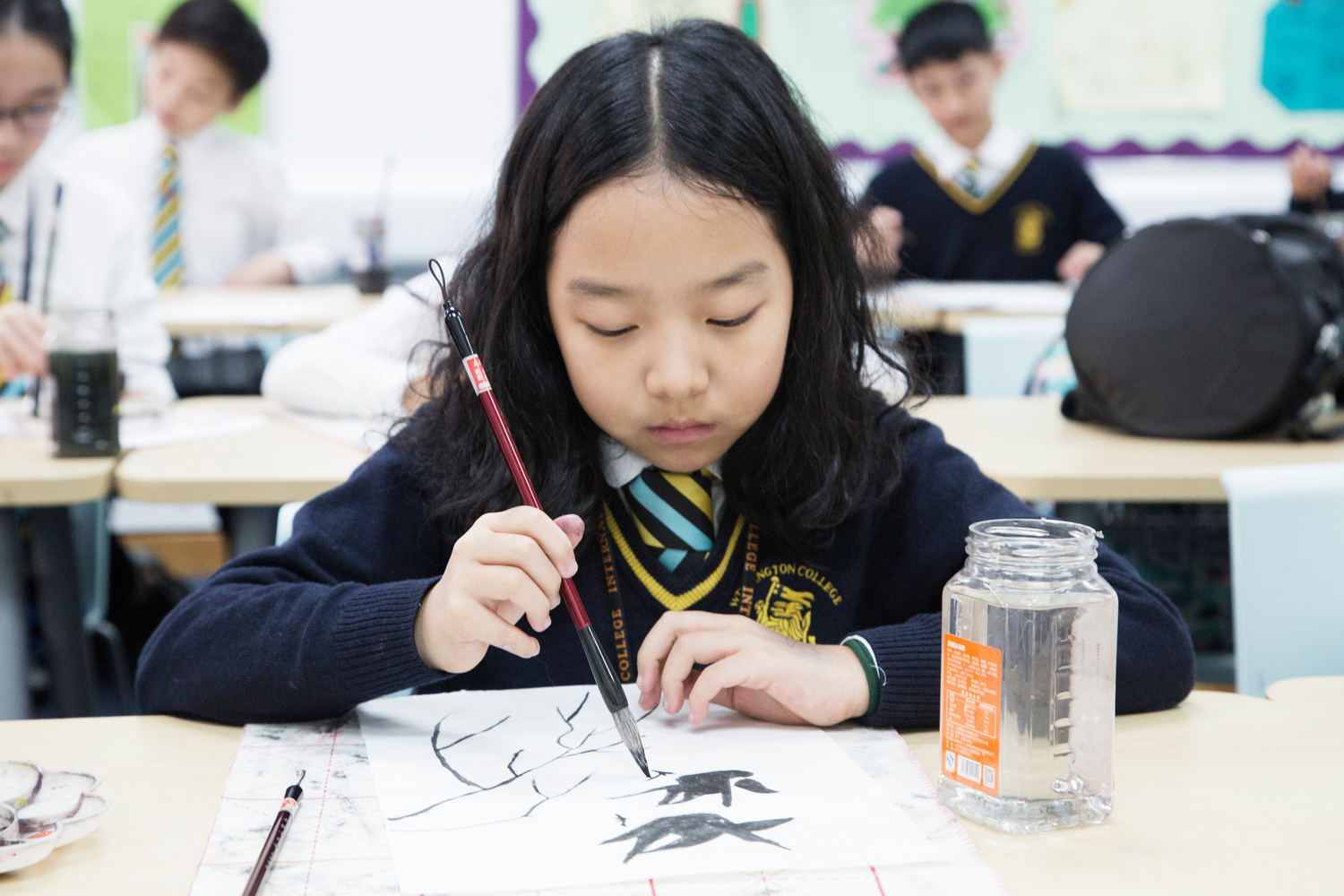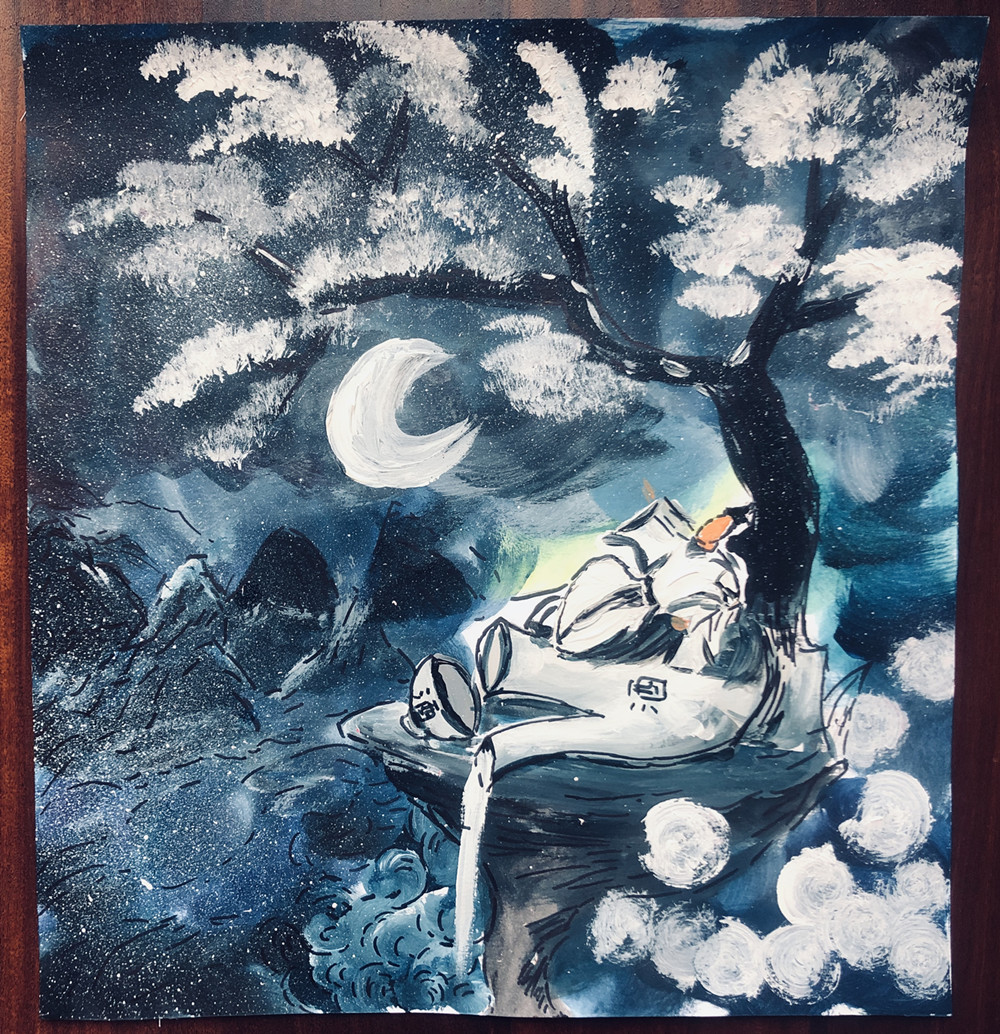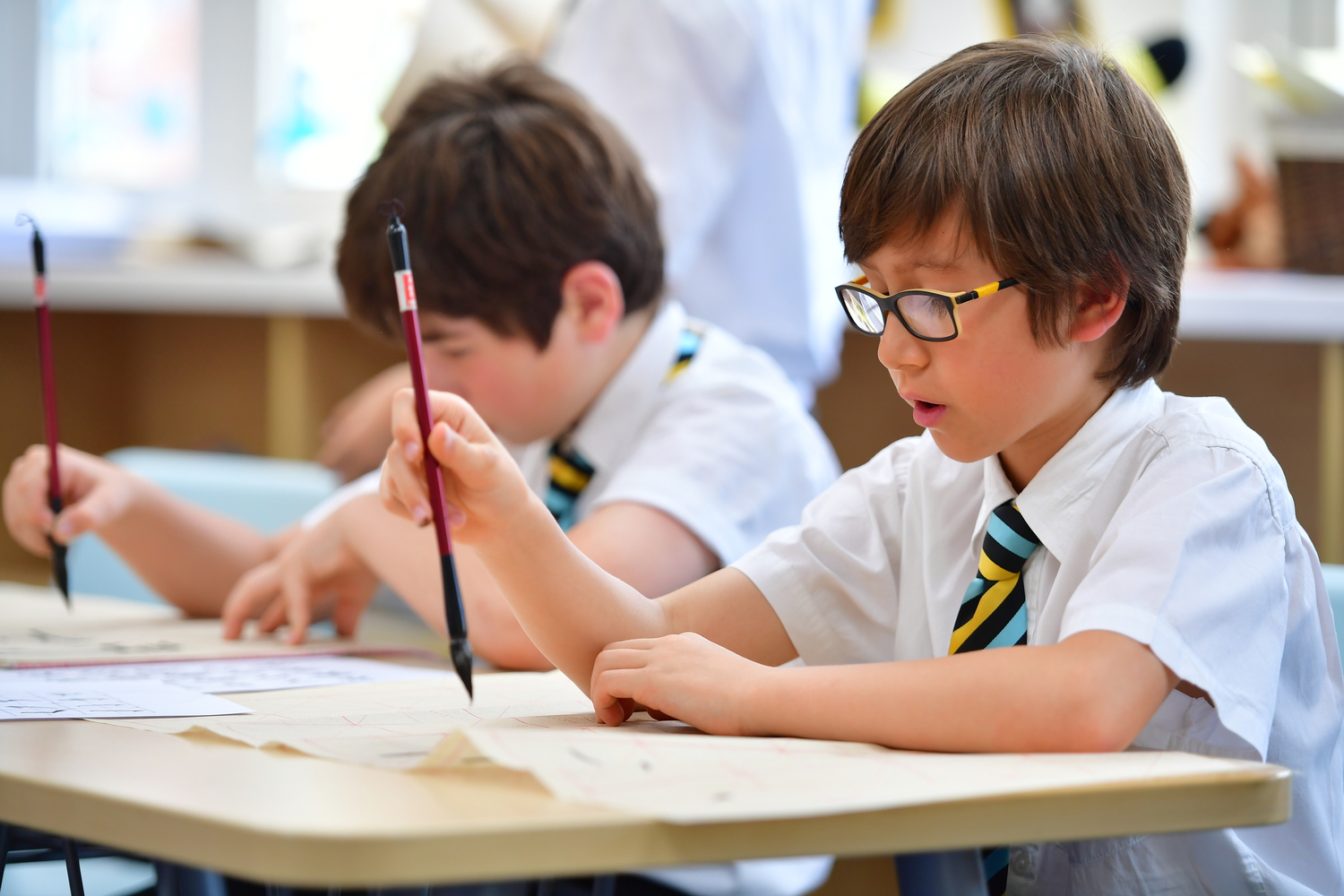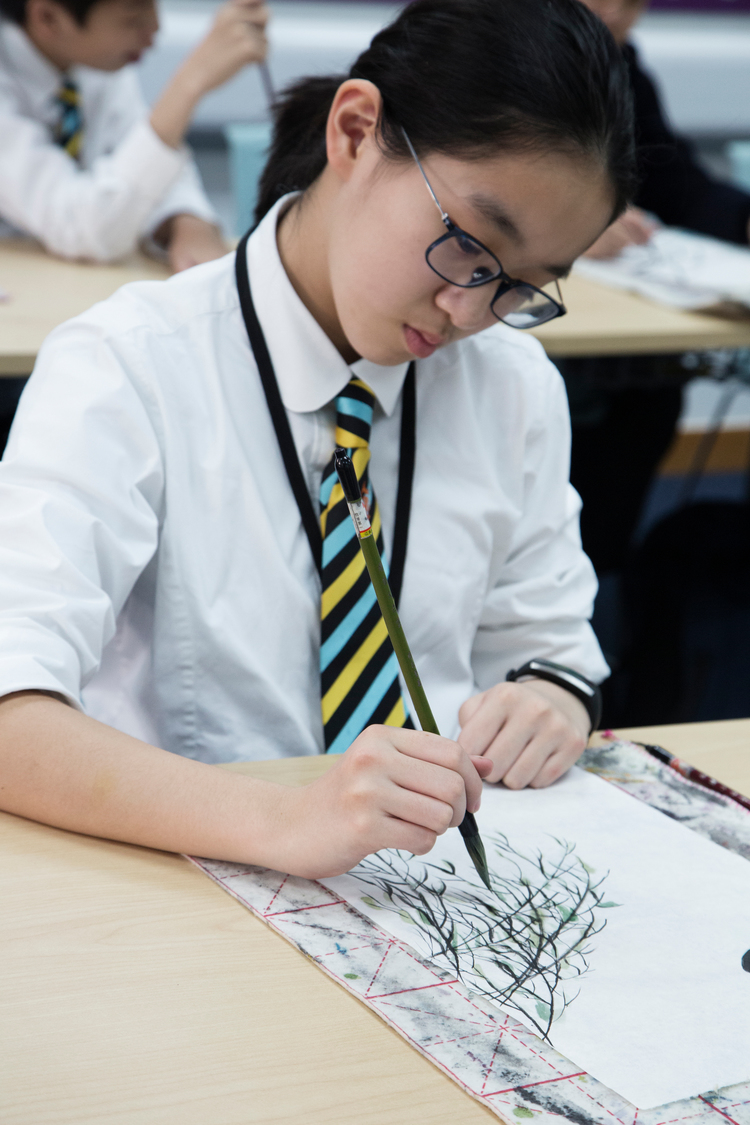School life in China and cultural understanding highlighted at poetry competition
08 Nov 2019
 Back in May, media company China Intercontinental Press opened a Chinese poetry competition to all pupils in Shanghai’s international schools. Rather than reciting poems or creating written poetry of their own, in this case pupils were tasked with interpreting poetry through painting.Ms Xiaoli Zhao, teacher of Chinese, who was the organiser of Wellington pupils’ efforts throughout this competition, shares her thoughts on the importance of cultural studies of this nature, along with Matthew from year 8, who received not one but two prizes for his efforts.
How was the competition set up? What exactly were the pupils expected to do?
Back in May, media company China Intercontinental Press opened a Chinese poetry competition to all pupils in Shanghai’s international schools. Rather than reciting poems or creating written poetry of their own, in this case pupils were tasked with interpreting poetry through painting.Ms Xiaoli Zhao, teacher of Chinese, who was the organiser of Wellington pupils’ efforts throughout this competition, shares her thoughts on the importance of cultural studies of this nature, along with Matthew from year 8, who received not one but two prizes for his efforts.
How was the competition set up? What exactly were the pupils expected to do?


 Why do you think it’s important to study Chinese poetry?
Why do you think it’s important to study Chinese poetry?

Related Articles

Mastering Mandarin, embracing Chinese culture17 Mar 2025
Sue WangHead of Secondary Chinese At Wellington Shanghai, we provide a comprehensive Chinese-language curriculum for our Secondary School pupils. This programme ensures a coherent progression across
Read More

Feb 25 – New Primary School Open House for 2025-26 entry!11 Feb 2025
Be You. Be A Wellingtonian. Welcome to the home of our Primary School! Please join us for our Open House flagship event on February 25. From performances and presentations to our Subject Heads meet a
Read More

Wellington and Hiba pupils shine in multiple competitions22 Jul 2024
At Wellington College China schools, Be You. Be More is more than just a slogan. We bring this aspirational spirit to everything we do. Every year, across all our schools, our pupils amaze us with wh
Read More










